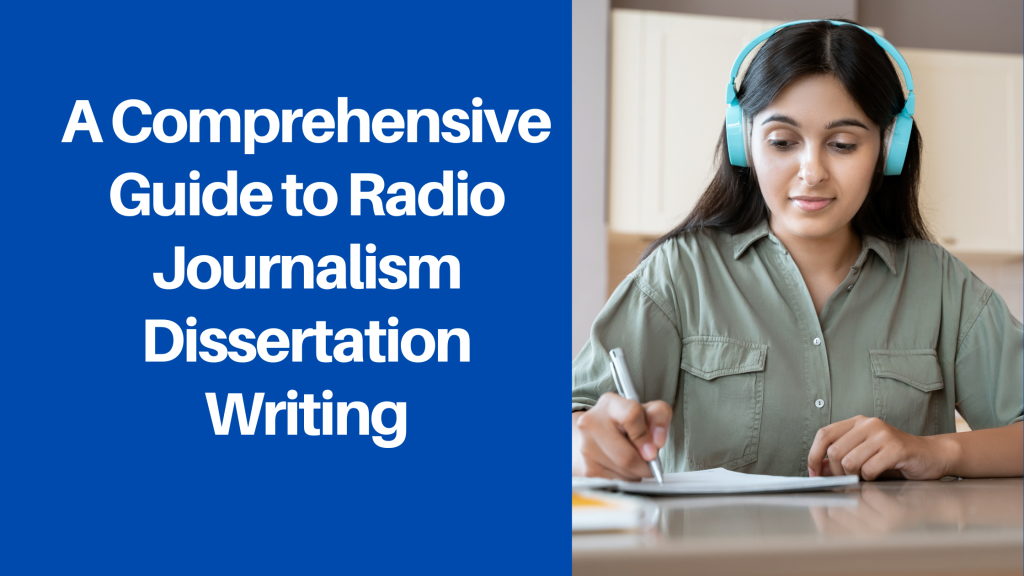
The invention of the radio in the late 1800s revolutionised the travel of news and global communication. It quickly became the household fixture and dreamscape for the masses. Radio plays a vital role in disseminating information in regions around the globe.
Interestingly, Radio enlivened the European music “Roll and Rock” era. Whether news or music, Radio remains the most consumed source of information around the globe. The debate about the vanquishing future of radio still sparks on. Looking at facts and figures defies this claim and unfolds new dimensions to ponder.
According to a recent report on the amount of radio listenership in Europe published by Statista, Germany in the radio media market ranks first with 58.9 million users, followed by the United Kingdom with 44.61 million users, further traced by Malta with 0.32 million users in the market.
Embracing new forms of technology in radio journalism brings various opportunities to play with. Writing a dissertation in Radio Journalism is one of them.
This diverse field unravels many radio journalism dissertation topics for journalism students to explore. Writing a dissertation on radio journalism demands extensive knowledge of media history and its evolution in a digital world. The process can be tricky and time-consuming.
Digging into the ideas and topic for your radio journalism paper is a major back-breaking step in earning grades and success. This article will explain how you can understand the essence of writing a successful dissertation on radio journalism.
Moreover, are you tight on schedule and deadlines? You can rely on The Academic Papers UK to buy dissertation online written by a subject specialist writer and unveil new accomplishments in your academic venture.
What is Radio Journalism?
In this fast-paced world of digital media, the world is switching towards internet radio stations and radio podcasts. Incorporating emerging methods in traditional radio has already modified its trajectory. Radio Journalism deals with investigating and reporting news stories disseminated or delivered to radio listeners via radio.
According to Radio Journalist Shanel Petit:
“Radio Journalists identify research and present news stories for a wide range of audiences. They are expected to present news bulletins, record interviews, and voice news items or longer features.”
Foster Innovative Ideas for Radio Journalism Dissertations
Generating innovative and engaging ideas for your Radio Journalism dissertations is cumbersome and tedious for many students. In this broad field, you can access an infinite range of topics. Things can disarray, but your topic selection should reflect your interest. The crucial element is crafting outstanding and trending ideas for your dissertation.
- Brainstorming: Are you unable to decide what you should work on? Brainstorming is the way to stir on your creative side. Ask yourself, what intrigues the most in this discipline? Finding out what type of dissertation topics pique your interest can be handy.
- Gather Information: Radio Journalism dissertation writing should cover the trending topics. Gathering information around untouched ideas should be your priority to stay one step ahead of the game. Always look out for what’s new.
- Search Archives: Search into previous data to jump into your decision. Study the research on the relevant topic to find loopholes and establish your framework.
Bump into Examples
Preparing yourself before delving right into dissertation writing should be encouraged. A deep, comprehensive understanding of technicalities associated with write-up should be addressed beforehand.
If you are a student seeking ways to get a handful of information and access to radio journalism dissertation samples, here is an example you can benefit from,
Example: Successful Marketing Strategies Employed by Traditional AM/FM Radio Stations (A Radio Journalism dissertation by Shaquilla Nicole Smith about finding out effective marketing strategies incorporated by traditional radio stations to compete with internet radio stations)
7 Steps Guide to Write a Radio Journalism Dissertation
Step1: Address the Trouble Selecting Out Topics
Are you grumpy or need more inspiration to pick a topic for your dissertation on radio journalism? Take it easy now, and let’s delve into the efficient strategies that can help you select an excellent dissertation topic to start on.
- Select Topic Based on Relevance: The most critical task in initiating a dominant and logical radio journalism project is choosing a topic that should entirely stick to the domain of your study. Always narrow down your topic to avoid ambiguity and future complications.
- Interest Trigger: Your topic selection should reflect the exciting strategy to deal with in the first place. Repetitive or mundane issues are uninviting. Set your dimension to unearth contemporary topics.
- Cover Broad Spectrum: Don’t pick out topics that are too congested, nor choose too spacious topics. Go for the issues that can offer you the chance for deep digging into archives and online databases to find relevant data resources to make a dissertation worthy of publication.
Step 2: Initiate Preliminary Research
The minute you finalise your topic after a thorough discussion with your supervisor, you are one step ahead to jump into preliminary research to construct the conceptual framework of radio journalism dissertation writing.
- Go to your university/college radio archive section to kick-start your dissertation writing.
- Start looking for relevant data and sources to set your study base.
- Meet with experts in radio journalism to comprehend the root cause of research.
- Side-line the relevant material to use as a reference later on.
Step 3: Send Out the Dissertation Proposal
In the third step, after inquiring about your dissertation writing topic, you can formulate a successful dissertation proposal. According to Harvard University, a dissertation research proposal must:
- Highlight your subject of research.
- Deliver your comprehension and thorough background knowledge of the topic.
- Discuss the dissertation objectives, aims, and research impact on concerned groups or individuals.
- Select the time frame of your dissertation writing and pass on your proposal to the relevant faculty to make a final call.
Step 4: Compose Your Final Dissertation Statement
This step involves developing a strong and valid radio Journalism dissertation statement. Formulate a logical argument. Writing a logically sequenced thesis statement will act as a guide for your research. An intelligent dissertation statement has:
- Clear, concise and to-the-point direction
- Should address the “What” and “How” of the stated argument with evidence.
Step 5: Organize the Content Body of Your Dissertation
You must have fulfilled much work while writing a radio journalism dissertation. A Guide for Practitioner Scholars elaborates on the bigger picture of writing a rigorous thesis. The body chapter of the dissertation usually includes,
- Introduction
- Literature Review
- Methodology
- Findings and Results
The literature review is the backbone of any dissertation. To present your argument more systematically, rely on a solid literature review with source citations. It will reinforce the reliability and incredibility of your dissertation on radio journalism.
Furthermore, your research methodology defines your approach to the study, whether qualitative or quantitative. It ensures the accessible collection of data using techniques that best suit your dissertation.
The primary purpose of data collection is to answer your research questions. Write your findings derived from methods to deduce a result for your dissertation.
Step 6: Preview Your Draft
Once you finish the whole write-up, you need to preview the content. Before that, take a few days’ break and recheck your write-up to evaluate any inaccuracy better. Rechecking and re-editing in Radio Journalism dissertation writing aims to transform your content to a new level. Make sure to secure your dissertation from any fallacy and irrelevant material.
- The final draft of your dissertation should be in the APA, MLA, or the format predefined by your institution.
- Check the grammatical mistakes and spelling errors.
- Use the recommended font style, size, spacing and margins.
Step 7: Ask for Feedback and Finalize Submission:
This process is ultimately necessary to achieve the desired results. Sometimes, it becomes difficult for students to analyse the loopholes. Asking for feedback is the final call to make magic happen.
Send the final draft to your supervisor and wait for the feedback. Always acknowledge the feedback as constructive criticism. Remember, your advisor is here to help you out for your sake. Take the input open-heartedly.
To Wrap Up
A radio journalism dissertation assists in browsing new opportunities to experience radio journalism practices in the digital realm. This comprehensive guide is designed to provide you with the right approach to help you write a winning dissertation. Following these steps will accommodate you in your journey to achieve great academic success.
If you still need help with the topic selection or a complete dissertation, you can contact trustworthy dissertation writing services such as The Academic Papers UK. They have native British writers with multi-year experience writing dissertations on several subjects, including radio journalism. We suggest you contact them to boost your grades.


